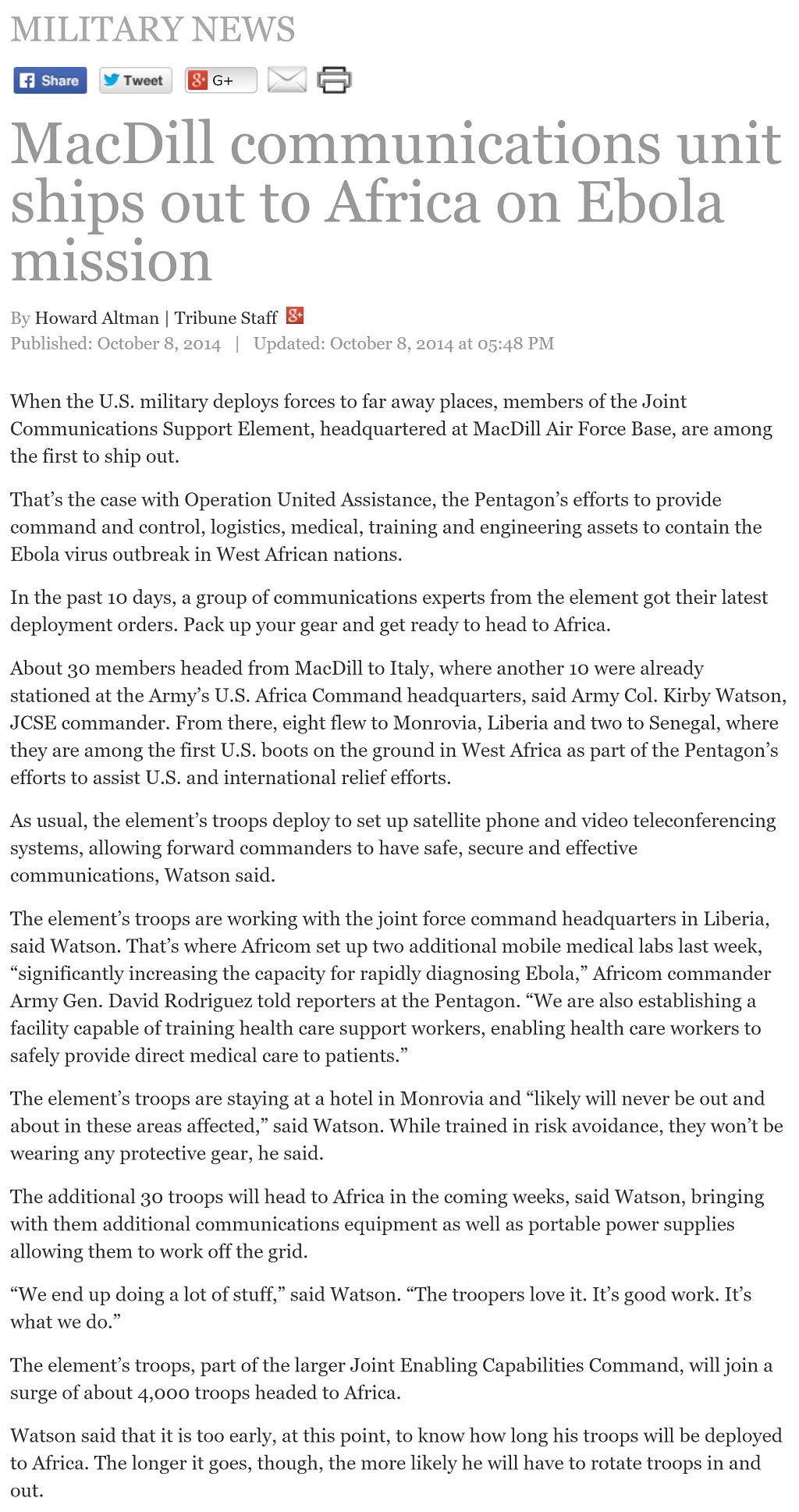
When the U.S. military deploys forces to far away places, members of the Joint Communications Support Element, headquartered at MacDill Air Force Base, are among the first to ship out.
That’s the case with Operation United Assistance, the Pentagon’s efforts to provide command and control, logistics, medical, training and engineering assets to contain the Ebola virus outbreak in West African nations.
In the past 10 days, a group of communications experts from the element got their latest deployment orders. Pack up your gear and get ready to head to Africa.
About 30 members headed from MacDill to Italy, where another 10 were already stationed at the Army’s U.S. Africa Command headquarters, said Army Col. Kirby Watson, JCSE commander. From there, eight flew to Monrovia, Liberia and two to Senegal, where they are among the first U.S. boots on the ground in West Africa as part of the Pentagon’s efforts to assist U.S. and international relief efforts.
As usual, the element’s troops deploy to set up satellite phone and video teleconferencing systems, allowing forward commanders to have safe, secure and effective communications, Watson said.
The element’s troops are working with the joint force command headquarters in Liberia, said Watson. That’s where Africom set up two additional mobile medical labs last week, “significantly increasing the capacity for rapidly diagnosing Ebola,” Africom commander Army Gen. David Rodriguez told reporters at the Pentagon. “We are also establishing a facility capable of training health care support workers, enabling health care workers to safely provide direct medical care to patients.”
The element’s troops are staying at a hotel in Monrovia and “likely will never be out and about in these areas affected,” said Watson. While trained in risk avoidance, they won’t be wearing any protective gear, he said.
The additional 30 troops will head to Africa in the coming weeks, said Watson, bringing with them additional communications equipment as well as portable power supplies allowing them to work off the grid.
“We end up doing a lot of stuff,” said Watson. “The troopers love it. It’s good work. It’s what we do.”
The element’s troops, part of the larger Joint Enabling Capabilities Command, will join a surge of about 4,000 troops headed to Africa.
Watson said that it is too early, at this point, to know how long his troops will be deployed to Africa. The longer it goes, though, the more likely he will have to rotate troops in and out.
